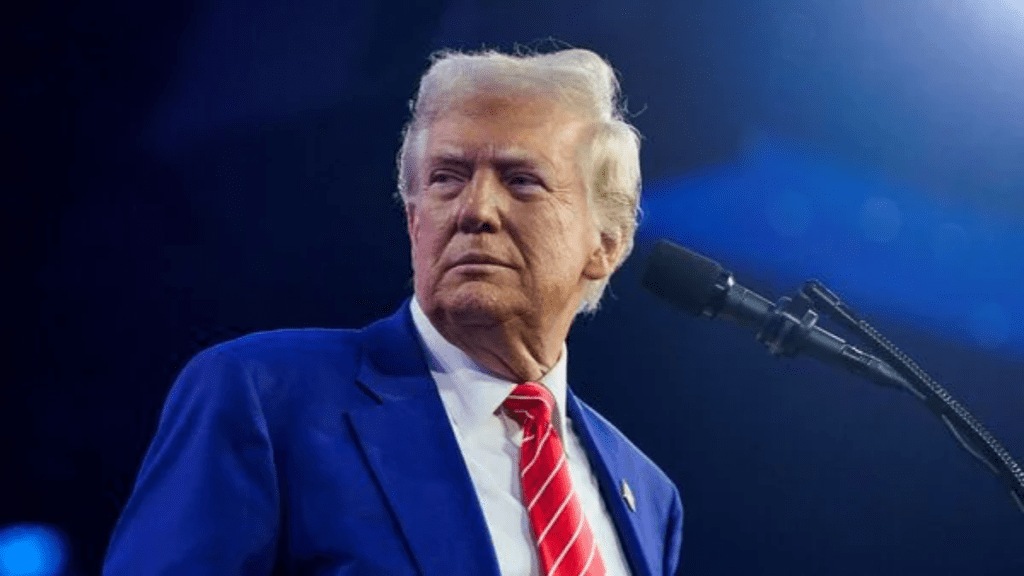Greenland’s parliamentary elections are set to take place, with the territory’s political future hanging in the balance. As the Arctic island debates its path to independence from Denmark, a surprising shift is emerging—many voters are considering aligning with US President Donald Trump’s vision, which promises security, wealth, and a stronger geopolitical position.
Greenland, a self-governing territory of Denmark, has become the focal point of a global power struggle. With vast untapped natural resources, key Arctic trade routes, and strategic military significance, the world’s major players—the United States, China, and Russia—are all eyeing its future. The election could have far-reaching implications for not just Greenland, but global security dynamics as well.
Trump’s Offer: Wealth and Protection
Trump, who first floated the idea of the U.S. purchasing Greenland in 2019, has doubled down on his efforts since returning to the White House. In a recent statement, he reinforced his support for Greenland’s right to self-determination and made a direct appeal to its people:
“As I made clear during my Joint Address to Congress, the United States strongly supports the people of Greenland’s right to determine their own future. We will continue to KEEP YOU SAFE, as we have since World War II. We are ready to INVEST BILLIONS OF DOLLARS to create new jobs and MAKE YOU RICH — And, if you so choose, we welcome you to be a part of the Greatest Nation anywhere in the World, the United States of America!”
Trump argues that securing Greenland is critical for U.S. national security interests, given its location in the Arctic and its proximity to key shipping routes and military installations. His statement has sparked debate within Greenland, with some seeing his promises as an opportunity for economic prosperity, while others remain skeptical of foreign influence.
Greenland’s Political Landscape
Greenland’s parliament, Inatsisartut, has 31 seats, with 16 needed for a majority. The election will determine the island’s stance on independence, with the leading parties deeply divided on how to approach the future:
Geopolitical and Economic Stakes
Greenland is home to just 57,000 people, of which 40,500 are eligible to vote. But despite its small population, its geopolitical significance is enormous.
The melting Arctic ice has unlocked vast reserves of natural resources, including an estimated 90 billion barrels of oil and 40 billion barrels of natural gas, according to the U.S. Geological Survey. Greenland is also rich in rare earth minerals crucial for battery and microchip technology, making it a highly valuable asset in global supply chains.
The Arctic region also offers lucrative trade opportunities. The Northern Sea Route (NSR) could cut shipping times between Europe and Asia by nearly 40%, reducing fuel costs and reshaping global trade. Countries like Iceland and Finland are already harnessing Arctic renewable energy, and Greenland could become a hub for hydro, wind, and solar power.
Since World War II, the Arctic has also been a key military zone. The U.S. occupied Greenland during WWII to prevent Nazi Germany from taking control, and during the Cold War, both the U.S. and Soviet Union recognized the Arctic as a nuclear missile launch pathway. The U.S. maintains military bases in Greenland, including Pituffik Space Base (formerly Thule Air Base), which is critical for missile warning, defense, and space surveillance operations for NATO. Greenland is also part of the GIUK (Greenland-Iceland-UK) Gap, a vital chokepoint for monitoring Russian naval activity.
Russia, meanwhile, has spent billions of rubles strengthening its Arctic military and industrial infrastructure, while China is incorporating Greenland into its Polar Silk Road, part of the Belt and Road Initiative, to expand its economic influence in the region.
What’s Next for Greenland?
Denmark has recognized Greenland’s right to hold a referendum on independence at any time, but Prime Minister Mette Frederiksen has firmly rejected Trump’s previous advances. However, with Greenland’s election shaping up as a referendum on independence, the next government could move towards breaking ties with Denmark.
Recent opinion polls suggest a majority of Greenlanders favor independence, but the timeline remains uncertain. Analysts predict that Greenland is entering a period of “meteoric rise, sustained prominence, and ubiquitous influence,” making it one of the most sought-after territories in the world.
Dwayne Menezes, managing director of the Polar Research and Policy Initiative, summarized Greenland’s growing importance:
“Greenland – located at the crossroads between North America, Europe, and Asia, and with enormous resource potential – will only become more strategically important, with all powers great and small seeking to pay court to it. One is quite keen to go a step further and buy it.”
As the election unfolds, all eyes are on Greenland’s voters. If pro-independence parties win, the island could move closer to severing ties with Denmark—and possibly stepping into Trump’s proposed future under U.S. influence.
